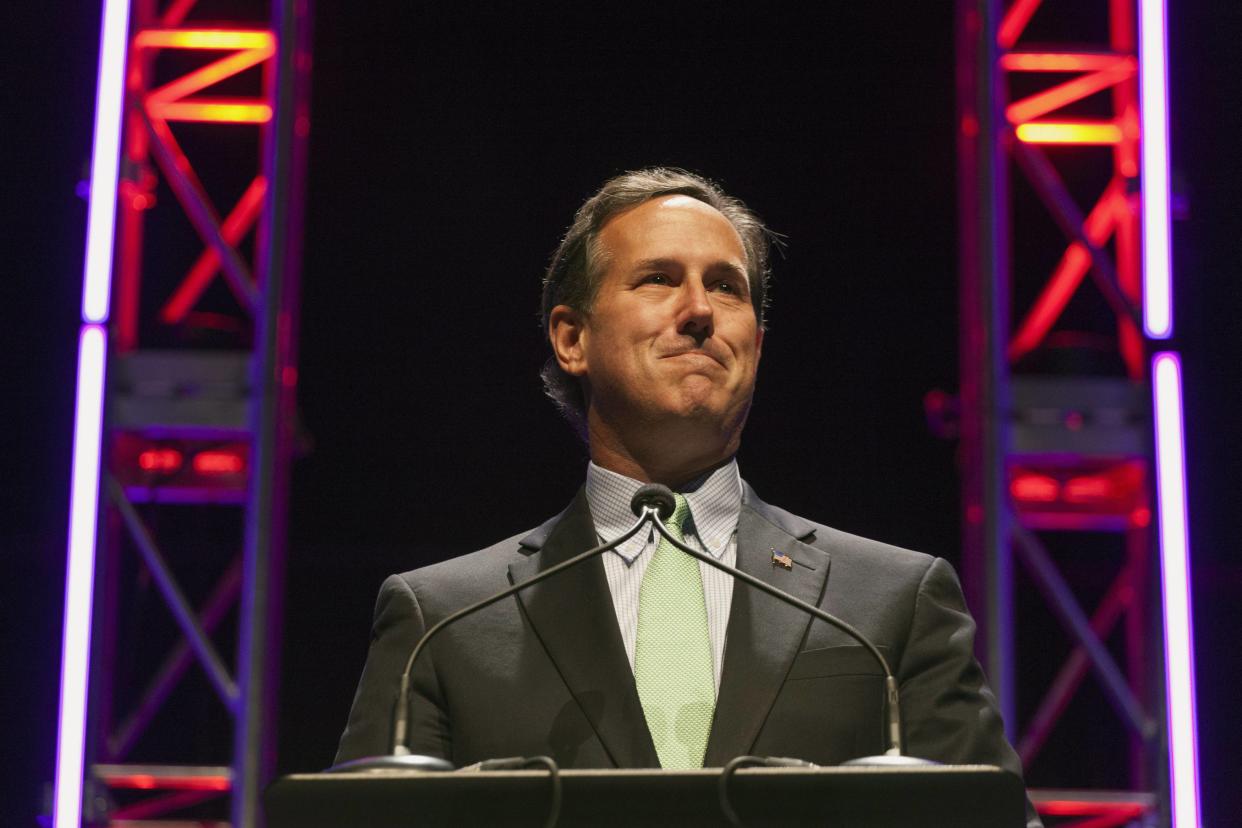Conservative meeting will give GOP presidential hopefuls a chance to assert foreign policy chops
Five possible future candidates will speak at the Values Voter Summit this weekend

Top Republicans have voiced both concern and support regarding President Obama’s decision to launch airstrikes against the Islamic State militants, but on Friday conservatives looking to stand out as possible presidential contenders have an opportunity to display their foreign policy chops in front of voters gathered at a forum of social conservatives in Washington, D.C.
Hundreds of conservative activists plan to gather at the annual Values Voter Summit this weekend, where they will hear from several Republican speakers, including Louisiana Gov. Bobby Jindal, Kentucky Sen. Rand Paul, Texas Sen. Ted Cruz, former Pennsylvania Sen. Rick Santorum and former Arkansas Gov. Mike Huckabee. All five have hinted at launching their own presidential bids next year, and the conference provides a chance for them to assert their position on Obama’s handling of the rise of IS in the Middle East in front of people eager to find a conservative replacement to the president in 2017.
Foreign policy will be a topic that many—if not all—of these speakers will address, the politicians’ aides told Yahoo News as part of previews of their speeches.
“Gov. Huckabee will address Obama's foreign policy and the war on terror,” Alice Stewart, a Huckabee spokeswoman, said. “He will cover a range of issues, and strong national security is among them.”
Huckabee on Tuesday posted on his Facebook page that he approves of Obama’s decision to arm the rebels and take action against IS but called the plan “strategically insufficient,” and he criticized Obama for saying in a speech last week that IS did not represent Islam.
“Obama noted that the 'Islamic State' is not Islamic. But it most certainly is,” Huckabee wrote. “Saying it isn’t rings hollow coming from Americans. It's like the Saudis lecturing hate groups within the U.S. It falls on deaf ears and lacks credibility. Instead, he, and other Western leaders must pursue every option to convince Islamic national leaders and their clerics to make such proclamations — publicly, loudly, and often.”
Jindal spokesman Mike Reed said the Louisiana governor would also take time to discuss “Obama’s foreign policy and the recent bombings.” Jindal has not released a statement since the U.S.-led bombings began, but he did call upon Obama to act after two Americans journalists were beheaded last month.
Perhaps the most vocal opponent of arming Syrian rebels is Paul, who spoke for more than 45 minutes on the Senate floor last week before voting against a spending resolution to pay for the president’s plan. Cruz also voted against the plan, arguing that it “funds military operations in Syria that are not authorized by Congress and are dependent on unreliable actors in the region.”
Conservative reactions to violent recent developments in Iraq and Syria suggest a range of foreign policy approaches within the Republican Party. The wide-open presidential primary ahead gives Republicans with White House ambitions a chance to fill the vacuum of party cohesion and leadership on the role of the United States in the world.
In many ways, traditional lines that divide Republicans and Democrats have been flipped completely: Obama, who ran for president on an anti-war platform, has found himself in a seemingly uncomfortable position of beating the drums for war, while Republicans, who spent much of George W. Bush’s presidency calling for a robust use of military might, now have members vocally questioning Obama’s approach.
This weekend's forum will let each of them make their case in person.




